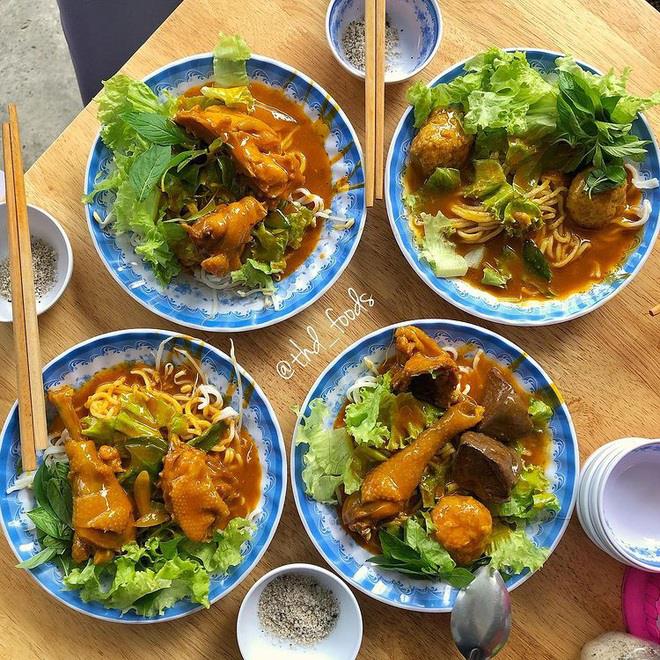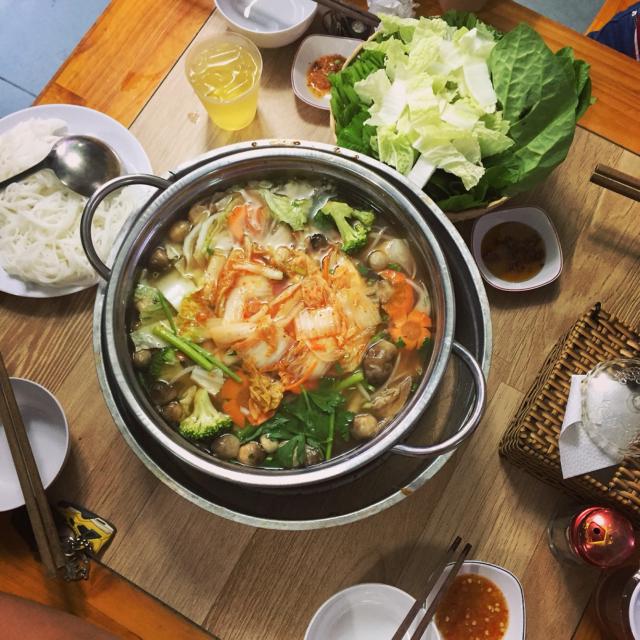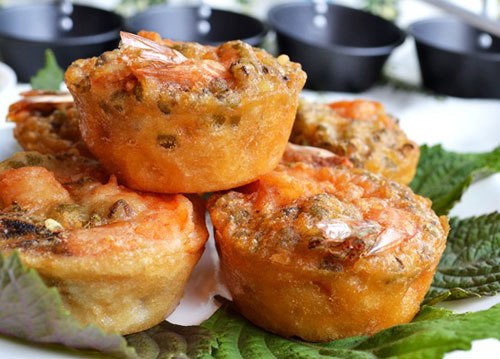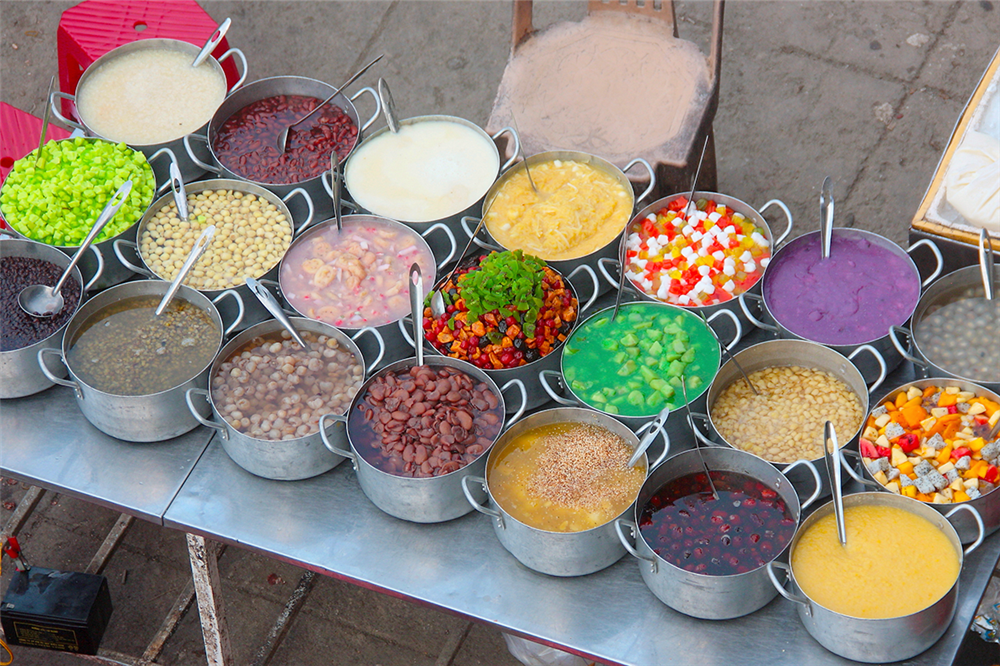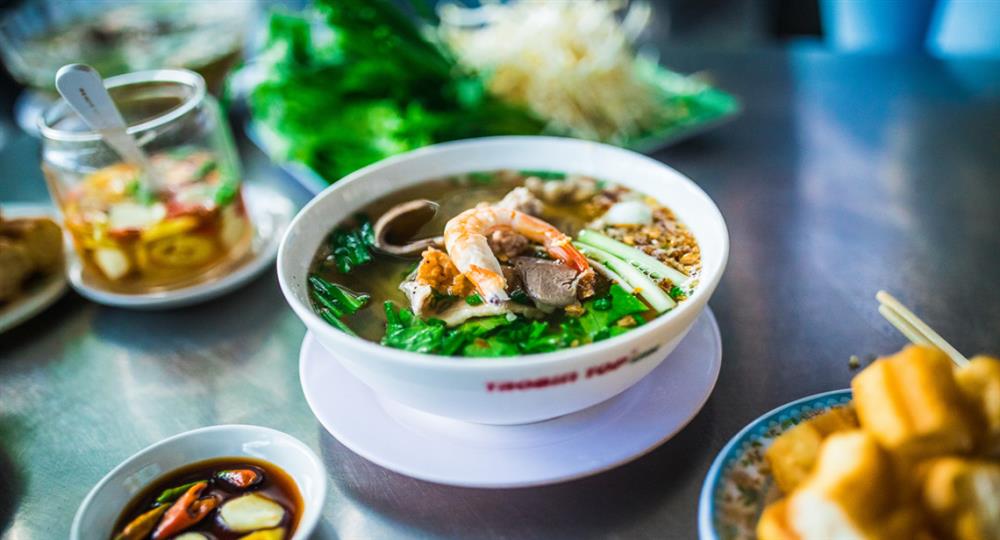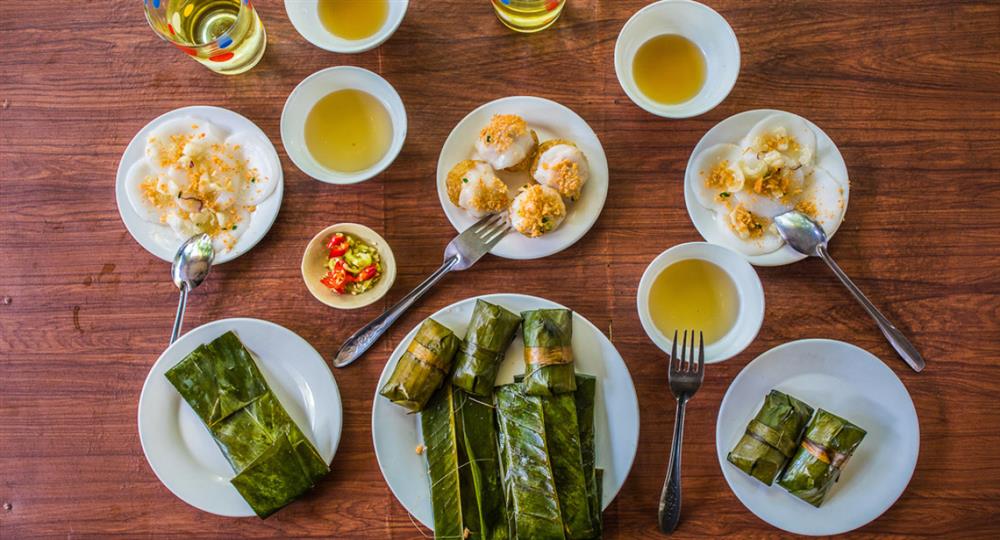Bánh tằm cay (bánh tầm cay), or spicy noodles, is one of the most popular dishes in Ca Mau, the southernmost province of Vietnam. The dish takes its name from the shape of the noodles, which resembles a silkworm (tằm).
Bánh tằm cay might be a rustic dish, but its preparation, from making the rice dough to cooking the curry sauce and the protein, is anything but. To create silkworm-like noodles for the dish, locals in Ca Mau choose the best rice, then soak in water overnight before grinding into powder. Rice powder is then mixed with water following a certain ratio and boil in low heat until the mixture achieves a thick, gooey, glue-like texture.
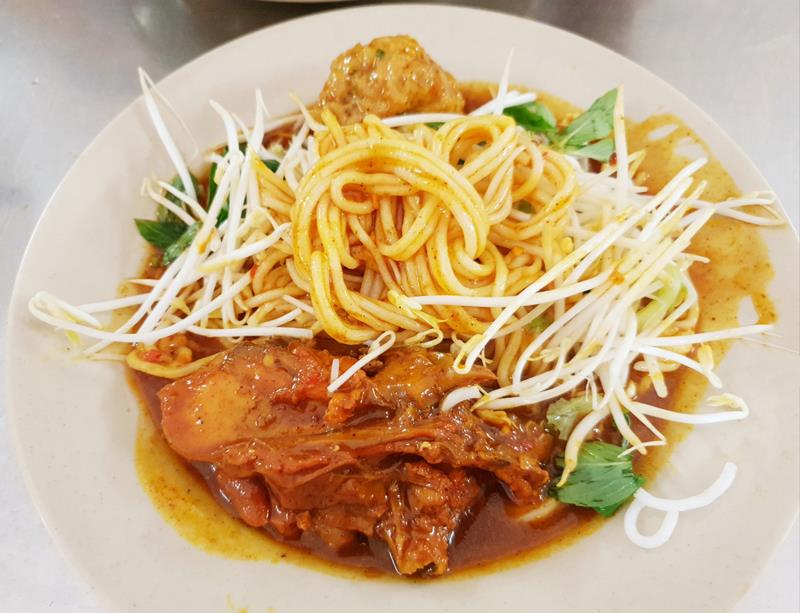
Bánh tằm cay, or spicy noodles, is a specialty of Ca Mau province. Photo: Dac san mui Ca Mau
When the thick mixture cools down, the chef sprinkles dry powder on a big tray or anything with a flat surface to prevent the mixture from sticking onto the surface, then rolls the mixture into threads of noodles before putting it in a steamer. Making the noodles manually takes time, but the final product is chewier and more delicious.
Bánh tằm can be cooked in many different ways, but people in Ca Mau love to serve the noodles with spicy chicken curry and meatballs.
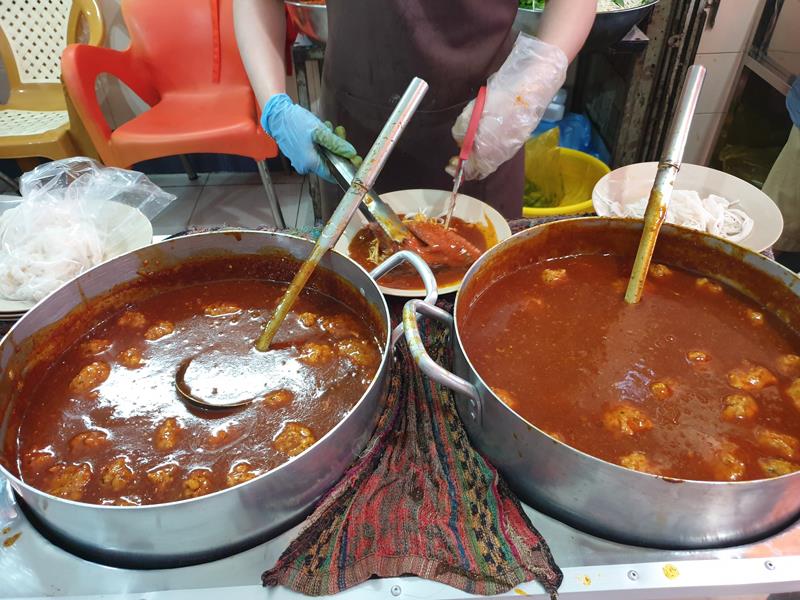
The thick, flavorful curry sauce is the soul of bánh tằm cay. Photo: Dac san mui Ca Mau
Choosing the right sources for the dish’s protein is an art unto itself. If the chicken brings some fun chewiness to the dish, the meatballs leave an impression on the eaters with their perfect balance between the umami flavor and fattiness. Meatballs must be made from pork of the highest quality, mixed with the right amount of seasonings and shaped into balls so that their flavors are not lost when eating with curry sauce. The pork chosen must have both lean meat and fat.
The flavorful spicy curry sauce is the soul of bánh tằm cay. To make the dish’s signature sauce, locals roast a plethora of spices such as clove, star anise, turmeric powder, cinnamon, dried coriander seeds and dried chilly together until a strong smell comes out, then grind the spices finely.
Visitors can choose between bánh tằm with spicy chicken curry, spicy meatball curry, or a mix of both. Photo: @thd_foods
The sauce is always boiled under low heat to keep it warm. Upon receiving the customers’ orders, the chef will start preparing the dish.
Bánh tằm is laid down on the dish first, followed by beansprout, basil, lettuce, blood pudding, gizzard and chicken on top. If the customers want meatballs, the chef will put a couple of big meatballs on the side of the dish before pouring hot, thick curry sauce into the dish. When eating, custmers can squeeze some kumquat and use an additional dipping sauce made with chilly, salt, and lime juice to their liking.
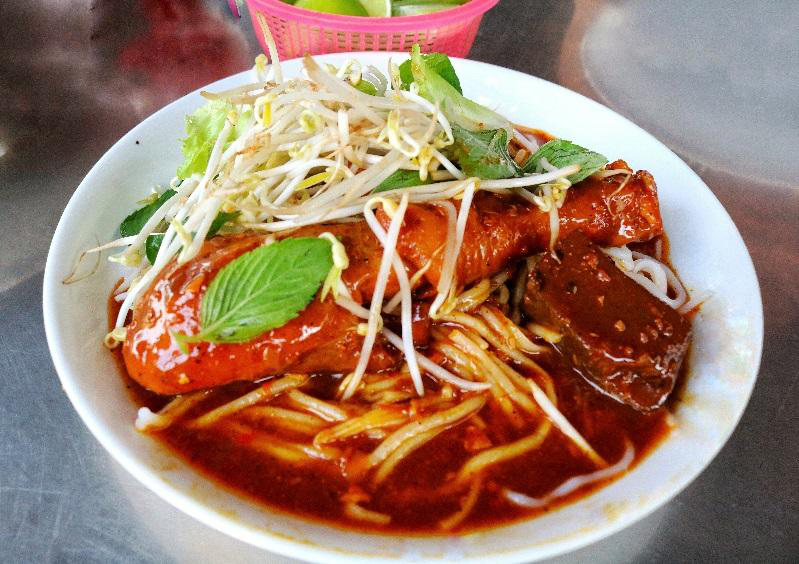
The main taste of bánh tầm cay is the spiciness, but that doesn’t take away the umami flavors of other ingredients. Photo: Bao ve Phap luat Newspapers
Bánh tầm cay is always served in hearty portions, with enough curry sauce to submerge all the noodles. When consuming, eaters use a pair of chopsticks to mix the noodles well with curry sauce. The hot, spicy sauce combining with the rich meatballs and chewy noodles form the crème, the soul of the iconic dish and of the cuisine of Ca Mau in general.
In addition to the two traditional flavors, some restaurants in Ca Mau add fresh coconut water or sugarcane juice, mixed with young lime leaves to enhance the aroma and flavor of the sauce.
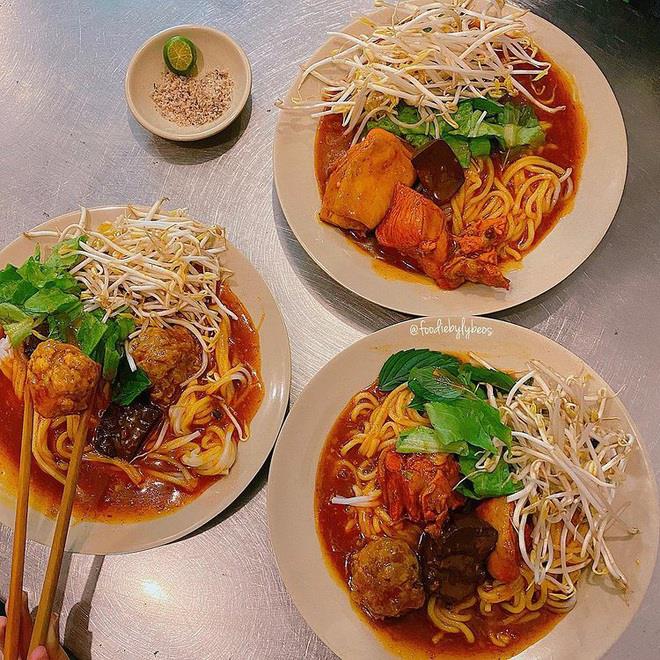
A full portion of bánh tằm cay includes the noodles (bánh tằm), curry sauce, blood pudding, chicken, meatballs, beansprouts and a variety of herbs. Photo: @foodiebylybeos
Whether for first-timers or regular customers, the intense spiciness of the curry sauce can bring eaters to tears but the rich umami flavor of the dish always leaves a lasting impression on everyone.
Coming to Ca Mau, you can easily find bánh tằm cay in food stalls or traditional markets. A portion of bánh tằm cay costs between VND 25,000 – 35,000. This delicious, rustic Ca Mau specialty can be eaten at any time during the day.
Sophie Tran








